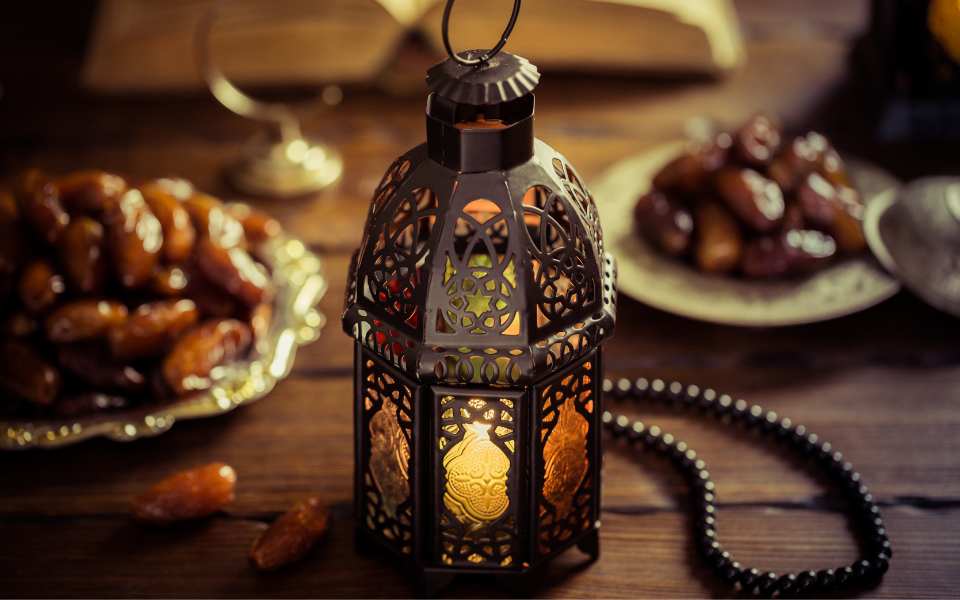
Published Sunday 11 April 2021 at 8:03
Muslim residents fasting during the month of Ramadan are advised to drink plenty of fluids and follow a balanced diet between fasts to stay healthy.
Ramadan is the Islamic holy month in which Muslims fast during daylight hours. This year Ramadan starts on April 12 or 13 and ends on Eid day in mid May.
The basic dietary advice for Ramadan is to keep it simple and similar to a normal everyday diet, including a balance of fruit and vegetables and plenty of fluids.
This year Ramadan fasts in the UK will last around 15 hours. It is important that anyone who is fasting makes sensible meal choices between fasts to support their energy requirements throughout the day.
Complex carbohydrates will help release energy slowly during the long hours of fasting. These can be found in grains and seeds, like barley, wheat, oats, millets, semolina, beans, lentils, wholemeal flour and basmati rice.
Fibre-rich foods are also digested slowly and include bran, cereals, whole wheat, grains and seeds, potatoes with the skin, vegetables such as green beans and almost all fruit.
It’s also a good idea to avoid heavily processed foods and foods that are high in sugar.
Eating too much at the breaking fast meal (Iftar) can cause symptoms of indigestion and heartburn, and it is also important not to skip the pre-dawn meal (Sehri).
The Sehri meal should include starchy foods that are slow digesting such as wholegrain bread, lentils, pasta, milk, chapattis, boiled rice and potatoes.
It’s important to rehydrate during non-fasting hours, and it’s also wise to avoid tea and coffee as caffeine can cause water loss and greater risk of dehydration.
Prof Dominic Harrison, Blackburn with Darwen’s Director of Public Health, said:
Ramadan fasting is a very important part of the Islamic faith and many of our Muslim residents will be fasting during the next month or so.
It’s important for Muslims not to neglect their health during Ramadan and follow this sensible advice on making wise food choices and not over-eating.
And of course, people with long term medical conditions and pregnant women should seek professional medical advice before starting to fast.
Lancashire Fire & Rescue Service has advice for Muslim households who will be cooking during the non-fasting hours between 8/9pm and 5/6am.
Deputy Director of Operational Response, Jon Charters said:
We would like to convey our best wishes to members of the Muslim community during the holy month of Ramadan.
We would also like to take the opportunity to stress the importance of remaining vigilant against fire hazards in the home. As daylight hours gradually increase during the month, fatigue often sets in and accidents can occur during food preparation. By ensuring you have a working smoke alarm, keeping a constant watch over cooking food and by tying back loose clothing, you will greatly reduce the fire risk and keep your family safer.
Filed under : health | healthy eating | Ramadan
